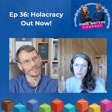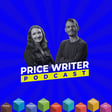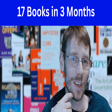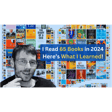Become a Creator today!Start creating today - Share your story with the world!
Start for free
00:00:00
00:00:01

Julia Lessing on the Price Writer Podcast Episode 24
This month on the Price Writer podcast I spoke to Julia Lessing actuary, executive coach, and author of "Aspiring Actuarial Leaders: The Modern Manager’s Toolkit.”
Julia is the founder of Guardian Actuarial and she shares her journey from actuary to leadership mentor, discussing the critical transition from technical expert to effective manager and leader.
Highlights
- Julia's motivation behind writing her book and how it's designed to help actuaries develop crucial managerial skills
- Personal experiences of challenging transitions into management roles, highlighting the importance of targeted leadership training
- Practical tips on communication, understanding audience needs, and navigating uncertainty effectively
- Julia’s unique career pivots and insights from roles like breastfeeding counselor and Lifeline crisis counselor, demonstrating the unexpected links between actuarial thinking and effective communication
- Her vision for empowering actuaries through lifelong learning and leadership skills, enhancing their ability to impact organizations and communities positively
This discussion is packed with valuable insights to help you develop your career and enhance your professional growth
Transcript
Introduction to Julia Lessing and her work
00:00:00
Speaker
Hello, today I'm joined by Julia Lessing from Guardian Actuarial. Guardian helps aspiring actuarial leaders make the jump from a contributor to an effective manager and leader and beyond.
00:00:16
Speaker
Julia is also the author of a book. It's called Aspiring Actuarial Leaders, The Modern Manager's Toolkit. I had the pleasure of reading a copy recently and I think it is excellent. It's a great resource. I personally wish I had had it when I was first a manager.
00:00:34
Speaker
i think it would have done so much more to prepare me for when I became a department head. So let's meet Julia.
Writing Journey and Inspiration
00:00:44
Speaker
hi Jeremy. Thanks for having me.
00:00:46
Speaker
ah Thanks for being It's great to see you today. I know you've recently released a book, so congratulations on that. And how does it feel? Oh, thank you. Yes, it's really exciting. It's the first book I've ever written and I never expected to do that as an actuary. So it's an absolute buzz.
00:01:04
Speaker
And congratulations on the first birthday of your book too. Nice to talk actuary and author to actuary and author. Absolutely. It is is really good. yeah What was sort of made you want to write a book? What kind of kicked off that urge and how was it?
00:01:20
Speaker
Yeah, good question. i mean, I've always wanted to write a book. I've always loved books and loved reading. and um wasn't really sure what that would look like. But it just kind of evolved because i I wrote the Guardian Actuarial Leadership Program back in 2021 I'd been delivering that program for a number of semesters and ActEx Learning in America approached me and they said, you know,
00:01:43
Speaker
would you like to write a book? We might be your publisher. we We publish actuarial textbooks and I got to know them a bit better and I thought, yeah, this would be a great opportunity to be able ah to package that content into a standalone format so that everyone can access this information and and help their actuarial careers.
00:02:01
Speaker
That must have been a super exciting moment though, being asked to write a book. Absolutely. Such an honour. Brilliant. Well, it's really good. i young i I've read it. I thought it was brilliant. I've mentioned it already, but I really do wish I'd had it when I was initially a manager.
00:02:20
Speaker
i found I found being a manager okay, but then when I became a department head for the first time, so I went from running a fairly small team to running a team of about 12 people in and quite a sudden step, really. So going from having sort of close contact with a couple of analysts to to managing managers, I found that a very difficult transition and I found it very, very hard and I really wasn't prepared for it.
00:02:47
Speaker
And i I don't think it went terribly well, if I'm honest.
Challenges in Actuarial Leadership Transition
00:02:50
Speaker
ah But eventually i I learned how to do the job and moved on. But I do think your book would have really helped me Oh, thank you.
00:02:58
Speaker
yeah and certainly your experience, um I'm sorry to hear of that, but it's so common ah because we don't learn these skills as part of our actuarial training. Nobody teaches us how to do this. So we're, you know, we're great in our technical work.
00:03:12
Speaker
We often get promoted into those leadership roles, but no one's taught us that we actually need a whole new set of skills. No one's taught us how to do that. And so it can be a very challenging transition for many actuaries.
00:03:23
Speaker
Yeah. now I definitely agree. So the first thing wanted to ask you, Julia, is how did you get where you are today? Well, that's a really interesting question, Jeremy. How did I get to where I am today? i think it's probably a combination of a few things. ah Good preparation, having a strong network that I've built over the course of my career, ongoing lifelong learning and following my interests, of course.
00:03:49
Speaker
Part of that's been learning to trust my gut instincts. But I've also faced a number of challenges, as most people do at some point. ah So curiosity and courage have gone a long way to help me navigate those.
00:04:01
Speaker
um And so when adversities hit or when interesting opportunities have arisen, I've dug deep, but I've drawn on my strengths, and then I've felt the fear and done it anyway, so to speak.
00:04:12
Speaker
But there's probably been a few pivotal moments in my career. The first was probably a mindset pivot point. So not sure about you, Jeremy, but I sort of grew up thinking that there were two kinds of people, people that were good at maths like me and people that were good at communication like other people.
00:04:30
Speaker
Well, no, I think that's fair. I think that's true. Yeah, yeah. I mean, I was good at math at school. No doubt you were too. I got good marks. I found it straightforward. It was right or wrong.
00:04:40
Speaker
um But this whole communication piece felt like a very, you know, abstract, nebulous kind of thing that you either were good at or you weren't.
Communication as a Key Skill
00:04:49
Speaker
But the pivot point came for me when I was 22. I'd graduated with my actuarial degree. i had two small kids and I was training as a breastfeeding counsellor.
00:04:57
Speaker
And when they taught us to, yeah, and they taught us to counsel mothers and they broke it down into a set of micro skills. And so for the first time ever, I saw a conversation or a um a response to to someone to help somebody as actually a bit of a formula, ah you know, with some structure and some sort of key, some flow to that, some key skills within that as well. It wasn't just totally winging it.
00:05:24
Speaker
yeah And I thought, wow, this is really powerful. ah That, you know, I'm a logical thinker. I like formulae. And actually I can apply that to communication skills as well. And that was, that continued then probably 10 years after that, I was a crisis counselor for Lifeline, which here is our crisis line that people can call. It's a free hotline.
00:05:45
Speaker
And the same kind of thing, handling all different sorts of callers coming through, um being able to apply a formula and combining micro skills to be able to have a successful conversation no matter what was coming up.
00:05:57
Speaker
So that was quite a powerful shift in mindset for me. And so I was able to apply that in my work. But then when I was able to apply that to help others in their work, which is what happened around the time of the pandemic and my actuarial consulting business um was was struggling because, ah you know, i couldn't leave the house.
00:06:19
Speaker
It was very hard to be consultant when you can't leave the house. Well, I was doing a lot of consulting to government at the time and their priorities were, know, understandably around COVID and around keeping people safe.
00:06:30
Speaker
And so I needed to think differently about, okay, well, how will I feed my family? How will i ah keep this business going? And the opportunity arose to rise to do more in the training and coaching space for actuaries.
Leadership Program During the Pandemic
00:06:42
Speaker
And so I was able to draw on those skills, my experience.
00:06:46
Speaker
I also trained as an executive coach, who qualified as an executive coach, started running the Guardian Actuarial Leadership Program, started doing more one-on-one coaching,
00:06:57
Speaker
Of course, Zoom became much more commonplace as well. So that opened up my geographical reach for my customers and was able to help people all around the world. So, you know, a couple of different pivot points that have sort of gotten me near, but I guess, you know, preparation, having a strong network, um ah undertaking lifelong learning and being prepared to to learn new things and get new qualifications,
00:07:20
Speaker
following my interests, staying curious, and then feeling the fear and doing it anyway. Sometimes Jeremy, that's, that's really helped. I think that's the crucial thing, actually, going ahead and doing it, feeling that you can't.
00:07:32
Speaker
I found that point about communications as a formula really interesting because think sometimes we can fall into traps of like trying to, I suppose, solve these things because we're so used to being problem solvers that then we approach communications as if it's a problem thing.
00:07:52
Speaker
And it's kind of like, what's what's the formula? What's the function to solve this presentation? and It often feels to me like that doesn't work, but it sounds like that's something you found has worked for you.
00:08:04
Speaker
I think it has. mean, I think we need to be flexible, we need to be adaptable and we need to be able to listen and respond. I think that's one of the challenges. You know, when we're doing our actuarial work, we can drive that process to a certain extent. We can follow the process, follow the formula, get to the end.
00:08:23
Speaker
Where that formula approach falls down for us in communication is where we try to apply that same approach to our communication, that we're driving and we're taking the steps and we're following a linear process.
00:08:35
Speaker
Yeah. The difference with communication is that we do need to be um interacting with the person that we're communicating with or considering our audience if it's a a one-way communication like some writing.
00:08:47
Speaker
um But being able to adapt on the fly, and I think that's where just having some different skills, few different tools in the toolkit, and lots of practice. I mean, that that's one thing that's different too, and we can't build our communication skills just by reading about them.
00:09:00
Speaker
Even though you and I are authors, Jeremy, that's a great foundation and resource for people, but really people need to go out and practice those things. We all need to practice and implement and apply those skills too to be successful.
00:09:12
Speaker
Yeah, that is absolutely right. It is about getting and doing these things to actually learn how to deal. And it's a very things i i I like the way your book is structured, actually, to sort of help people with the situations they then go into.
00:09:26
Speaker
And actually, it's tips and useful ways of dealing with with the actual work they're going to do. But as you as you say in the book and just now, quite rightly, you you can't develop skills necessarily just from reading. You have to apply what's written to situations and then react, you know, natural, actually react to what's going on, listen to people and change your approach. And yeah, I thought that was I think that's really, really valid point. Really good.
00:09:56
Speaker
Thank you. And Juliette, what would you describe as your mission then? What is it you want to, what is it you're doing? What is it you want to achieve?
Julia's Mission and Roles
00:10:07
Speaker
Yeah.
00:10:09
Speaker
So... If I was to describe my mission or or what I do, my purpose statement, that i i help actuaries build communication and readership skills so that they can have great careers and to maximise the impact for their clients and communities.
00:10:23
Speaker
So that underpins all of the activities that I'm currently engaged in. And I've got a few different hats that I wear. So the first is I'm the head of lifelong learning here at the Australian Actuaries Institute.
00:10:35
Speaker
And so in that role, I'm unresponsible for expanding the offerings and delivering new offerings, lifelong learning offerings for those who have qualified or finished their formal studies, expanding some of the non-technical training that we're offering, creating opportunities for networking so that we can accelerate our careers and future-proof our careers. And I guess in the age of AI, also future-proof the profession to some extent.
00:11:01
Speaker
Mm-hmm. So that's that's one, head of lifelong learning. The other one is, as I mentioned before, I'm a credentialed executive coach. So I help actuaries one-on-one with specific challenges that they're facing.
00:11:13
Speaker
um I don't do a remedial work. I work with high-performing actuaries. But sometimes actuaries need help making that transition to a pointed actuary role or chief actuary role. Sometimes they need help making the transition a team leader role for the first time, ah as you described, you know your own team.
00:11:31
Speaker
path was not that easy. It's not that straightforward because no one teaches us how to do it. So having that one-on-one coach to help you through those unique challenges. Sometimes it's mid-career pivots as well. So um building skills, but also just helping people navigate their own career.
00:11:47
Speaker
So I do that as a one-on-one executive coach, which I love. um And I'm still running the Guardian Actuarial Leadership Program that I started back in 2021. And so that's a small cohort-based program where we basically, well, we're working through the book this semester. It used to be content that we'd hosted online, but this semester we're using the book as a textbook.
00:12:08
Speaker
um But of course, it's not just about reading the chapters. It's about then applying what we've learned so that a whole lot of exercises throughout, as you'd know, because you've read the book, and then reflecting on it as a group and coming together and sharing challenges.
00:12:21
Speaker
What's my experience? Or here's something I'm facing. what does ah What do others think? And getting some different perspectives from people can be such a valuable process. um So, yeah, still running that leadership program, which is um which is awesome. so And I guess the final piece is is the book, which is making that content accessible to to people everywhere in the world.
00:12:43
Speaker
I think that point about so kind of developing together as a group is a really important one, actually, particularly knowing that other people are in the same position. I think culturally things have really improved in that way and it's much easier to talk to other people if you are finding a particular thing difficult.
00:13:02
Speaker
And there are other people in similar circumstances that you can develop with. So I think that really, really makes a big difference. What for you is success when when you're sort of working with your, perhaps your new managers or even the more senior people?
00:13:19
Speaker
What for you is success? What makes you feel like, yes, I've done a good job here? That's a really interesting question. And it probably depends on the person i'm working with because success for me is helping them achieve their goals.
00:13:34
Speaker
And those goals can be quite varied. So for some people, it might be feeling more confident to show up as a leader. For some, it might be securing a promotion to being a leader and they want to prepare for that and learn the skills they need for that.
00:13:48
Speaker
Sometimes it's securing a promotion or a con or a you know new role or having that kind of career development type conversation and so feeling equipped to go in and and have that conversation. So i think everyone's goals are really varied. So what does success look like for me It's probably being able to help people with whatever goal is that they aspire to.
00:14:10
Speaker
that's thes That's the key thing that they then succeed in what they're trying to achieve. Yes. I think that's excellent. That's really good. It brings me a lot of joy.
00:14:22
Speaker
What then would you say is your vision? and What do you want the world to be like? Where are you heading towards?
Global Impact and Communication Advice
00:14:29
Speaker
Hmm.
00:14:32
Speaker
So my vision for the future is that actuaries can leverage their superpowers to make a difference in the world at all levels. And, know, we're smart, we are highly trained, we have a unique skill set to be able to make a difference in the world. But, and we've talked about today, Jeremy, sometimes our impact's limited because we haven't been taught the skills we need to apply our superpowers effectively.
00:15:00
Speaker
And so ah a few examples, like even just knowing how to communicate the results of our work so that others understand them and can implement them. um You know, quite often what we do, and you talked about presentations before and just sort of applying that formula,
00:15:15
Speaker
When we go through our actuarial work, it is a bit of a linear process. You know, we get the data and then we, you know, clean the data and we build a model and we create some results and maybe run some scenarios and then we sort of have the answer.
00:15:27
Speaker
A common pitfall for Actuary when we're trying to communicate those results is that we want to take our audience on the journey. We want to tell them all about the great stuff that we've done. Yeah. all ah clever actuarial modeling and stuff that we've done, usually they don't care. and And so we need to actually fast forward through to the answer and start with, you know, we need to start with the say what, we kind of need to flip the script. So sometimes we apply a formula, but it's not quite the right formula for that scenario.
00:15:54
Speaker
That's an interesting one for me because I often find the communicating of the uncertainty is somewhere where people fall down. And to some extent, it is done. Science communicators have a lot of uncertainty and science have a lot of uncertainty. So there are people that do this successfully.
00:16:10
Speaker
But it often feels like we do go on that narrative that's about, or basically telling someone what are the reasons why the results are not good and then telling them the results.
00:16:21
Speaker
So what's kind of your tips for people to handle that situation? Yeah, yeah. So my top tip is to know your audience. What is it that your audience needs to know? What are they trying to do with the results from your work?
00:16:34
Speaker
Because there might there's going to be a range of... possible answers for the work that we do. There's not going to be one correct answer usually. We're often making predictions about a scenario, something that may happen, something that might happen in the future. So I think understanding where our audience is coming from and what they need, that's an important starting point for us to be able to craft and position our message. And think once we've done that, often that the the details of it will kind of fall out of that.
00:17:01
Speaker
What's the one tip for people, for actuaries, for people like us to get out and be kind of useful in other kind of walks of life, other areas, companies, careers and so on?
00:17:15
Speaker
Yeah, that's that's a big question, Jeremy. um I think there's a few aspects to that. One is we need to just get comfortable describing what we do without using too much technical jargon.
00:17:27
Speaker
ah We also need to, as I was talking about before, you know, communication is not just a one-way exercise. So we need to spend a lot of time listening. We need to engage with people from other professions and hear their perspectives and um and respect their perspectives as well. We all come from different backgrounds, different training areas.
00:17:47
Speaker
As actuaries, we kind of speak the same language, but other professionals have their own languages. So learning to understand those other languages, understand where they're coming from, and then being able to transform our dialogue and our vocabulary so that we can make that accessible and understandable for people who haven't had an actuarial background like we
The Importance of Lifelong Learning
00:18:09
Speaker
have.
00:18:09
Speaker
think that can go a long way to bridging those gaps. Yeah, i think I think that's very true as well, definitely. Well, thank you very much, Julia, for being with me today. Is there anything you'd like to add?
00:18:24
Speaker
think so it's been a great conversation ah but i think um yeah just to just to recap on on my vision for the future it would be that every actuary has access to high quality non-technical training uh to supplement their actuarial superpowers so they can maximize their impact and make a difference in the world that would be a great vision i think that'd be a great world I definitely think that's right. I think making a lot of learning accessible to people, particularly throughout their careers, is so important.
00:18:56
Speaker
I do think in many ways the model that was around kind of when i I was coming up through this, where you almost load up on a lot of learning at the start of your career. It's just it's not kind of how people work nowadays. It's got its place. But the reality is that there's so much change going on that people need to be able to access learning and training.
00:19:18
Speaker
And also, say to be frank, feel comfortable discussing the fact that there are things they don't know and areas that they can improve and actually having those conversations.
00:19:29
Speaker
Absolutely. Totally agree. Brilliant. Well, thank you very much, Julia. You have a lovely day and it's been lovely having you on. Thank you. Thanks, Jeremy. Thanks. Bye-bye.







